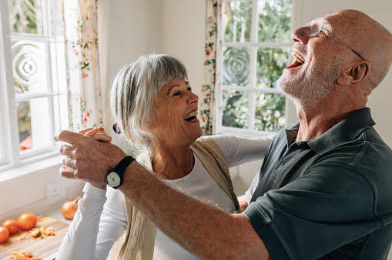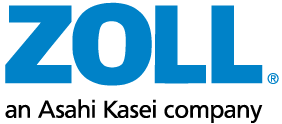World Restart a Heart Day: How You Can Help

The team at ZOLL recognizes the importance of heart health in maintaining long-term wellness. This year, we are excited to spread the word about World Restart a Heart Day on October 16th. Communities, organizations, and programs throughout the world will be helping to raise CPR and SCA awareness — and you should, too!
What is World Restart a Heart Day?
Restart a Heart Day is an annual campaign to raise awareness about cardiac arrest and the importance of CPR training. The Restart a Heart Campaign (RSAH) was started by The Resuscitation Council as a regional day in the United Kingdom.
Since then, Restart a Heart Day has become World Restart a Heart Day. WRSAH is sponsored by the International Liaison Committee on Resuscitation (ILCOR), which comprises representation from America, South Africa, Europe, Australia, Asia and more.
Many organizational allies, including the British Heart Foundation, American Heart Association, Red Cross, British Red Cross, and the Resuscitation Council, join together on World Restart a Heart Day to increase public awareness of SCA and CPR courses. Their goal is to improve the devastatingly low 10.6% survival rate of out-of-hospital cardiac arrests. Their efforts are making an impact: Last year's RSAH Campaign helped to train 238,793 people in CPR!
Get Involved!
Unfortunately, there is still an alarming lack of awareness surrounding heart health and how to properly respond in the event of an emergency. While about 54% of Americans claim to know how to perform CPR, only 17% know the recommended technique, and even fewer (11%) understand proper pacing.
For this year's World RSAH Day, take the time to educate yourself and your community. Here's how:
-
Learn about SCA:
Understanding what sudden cardiac arrest is and how to respond is critical for improving survival rates. SCA is an electrical disturbance in the heart that prevents it from beating properly. This reduces blood flow to the brain and causes loss of consciousness. Anyone is at risk for SCA – there are no warning signs, and it can strike even those with no history of heart problems.
Every year, 350,000 out-of-hospital cardiac arrests happen in the U.S. Administering CPR and defibrillation as soon as possible after the victim collapses can improve survival rates dramatically.
-
Learn CPR:
It takes only one person administering CPR at the right time to help save a life during a cardiac arrest. When CPR is performed immediately and effectively, it can significantly increase a victim's chance of survival. If an individual does fall victim to SCA, they'll be thankful that someone nearby knew how to provide CPR.
The American Heart Association offers many CPR-related courses and kits that offer more guidance and information.
-
Learn About Defibrillation:
Defibrillation is the act of delivering a controlled electric shock to the heart to help it resume a normal rhythm. One of the most common defibrillation machines is an automated external defibrillator (AED). A shock is not always needed, and an AED should be able to tell you if you need to administer one.
ZOLL offers many resources to help you learn more about defibrillation and get started in your AED journey.
-
Start your own event!
While this may sound like a daunting task, there are plenty of resources to make it easier. Talk to your organization's HR or safety manager and petition to hold CPR training. If you are affiliated with a school, suggest that the health teacher or nurse teach a class in CPR. Make it an event by inviting friends and family members to a group training session. You might be surprised at how much fun (and how informative) CPR training can be!
-
Volunteer:
Volunteering your time on Restart a Heart Day is a great way to show your dedication to the cause. Organizations that support causes like WRSAH Day always welcome volunteers — and you will get the added benefit of giving back to your community.
The American Heart Association, the Red Cross, and other organizations offer volunteer opportunities.
-
Spread the word!
The more people with knowledge of CPR and SCA, the more people are prepared to help save a life. Strive to make CPR and SCA knowledge a part of your community culture. There are plenty of ways to spread the message these days — so whether it's through social media or a dinner date, making those around you aware of how they can help is a big part of the process.
Final Thoughts
Simply by reading this article, you're already a part of World Restart a Heart Day. Want to help even more? Learn CPR, or refresh your skills, and start spreading the word. Remember, the risk of cardiac arrest does not stop after October 16th, so it is never too late to learn how to save a life.
With hard work, dedication, and enthusiasm, we can ensure that more people learn to help save a life in the event of cardiac arrest.

